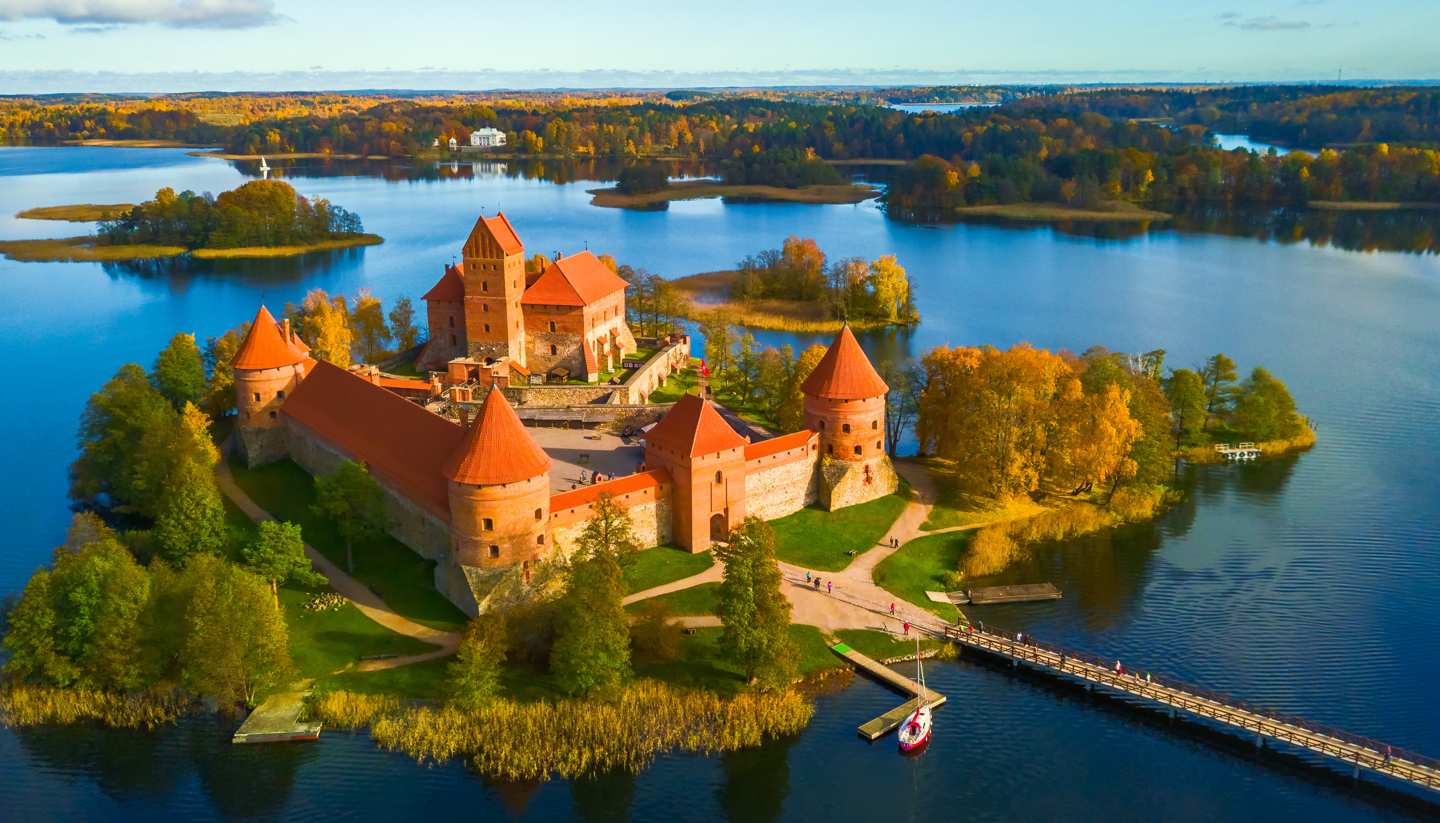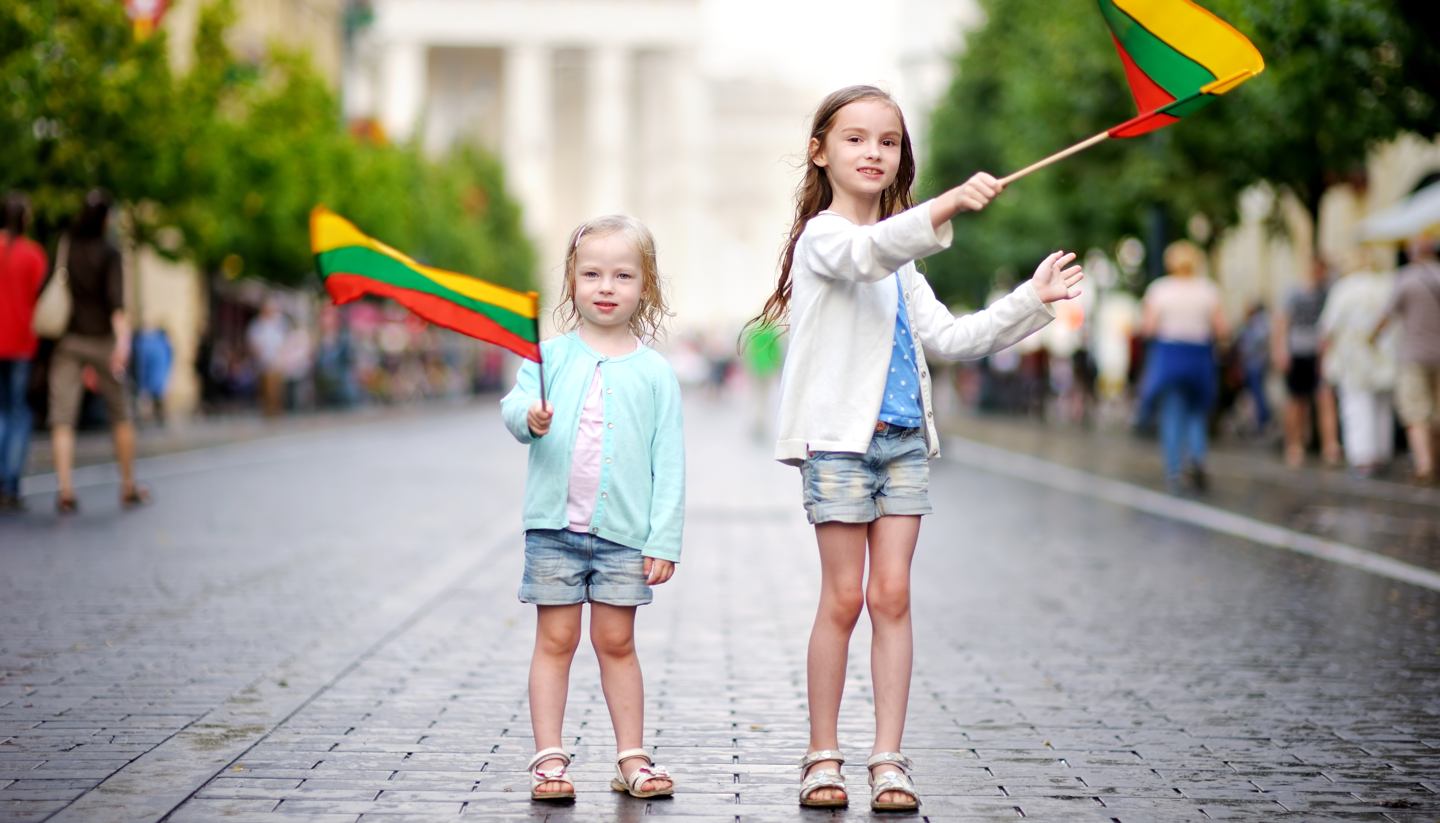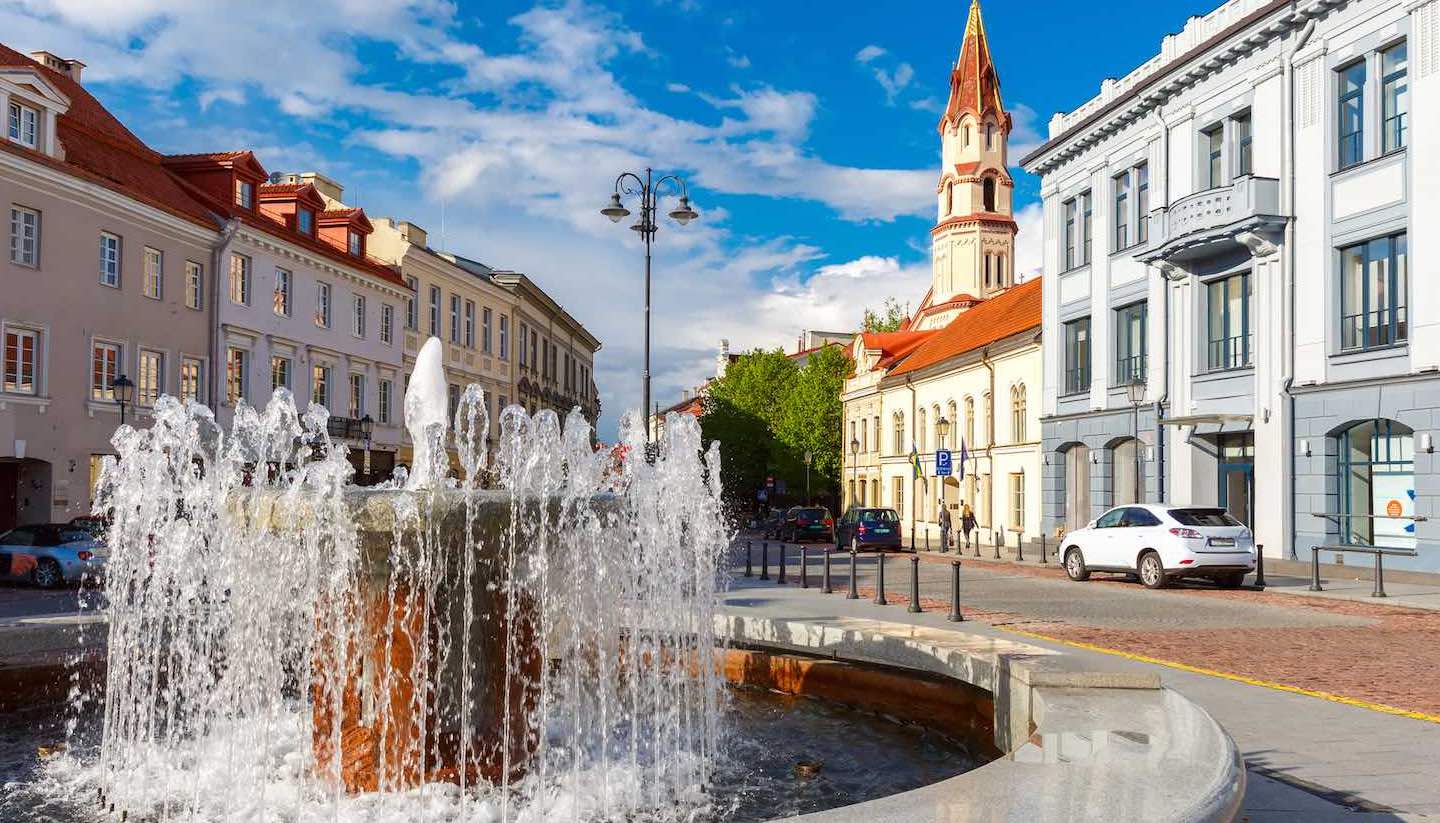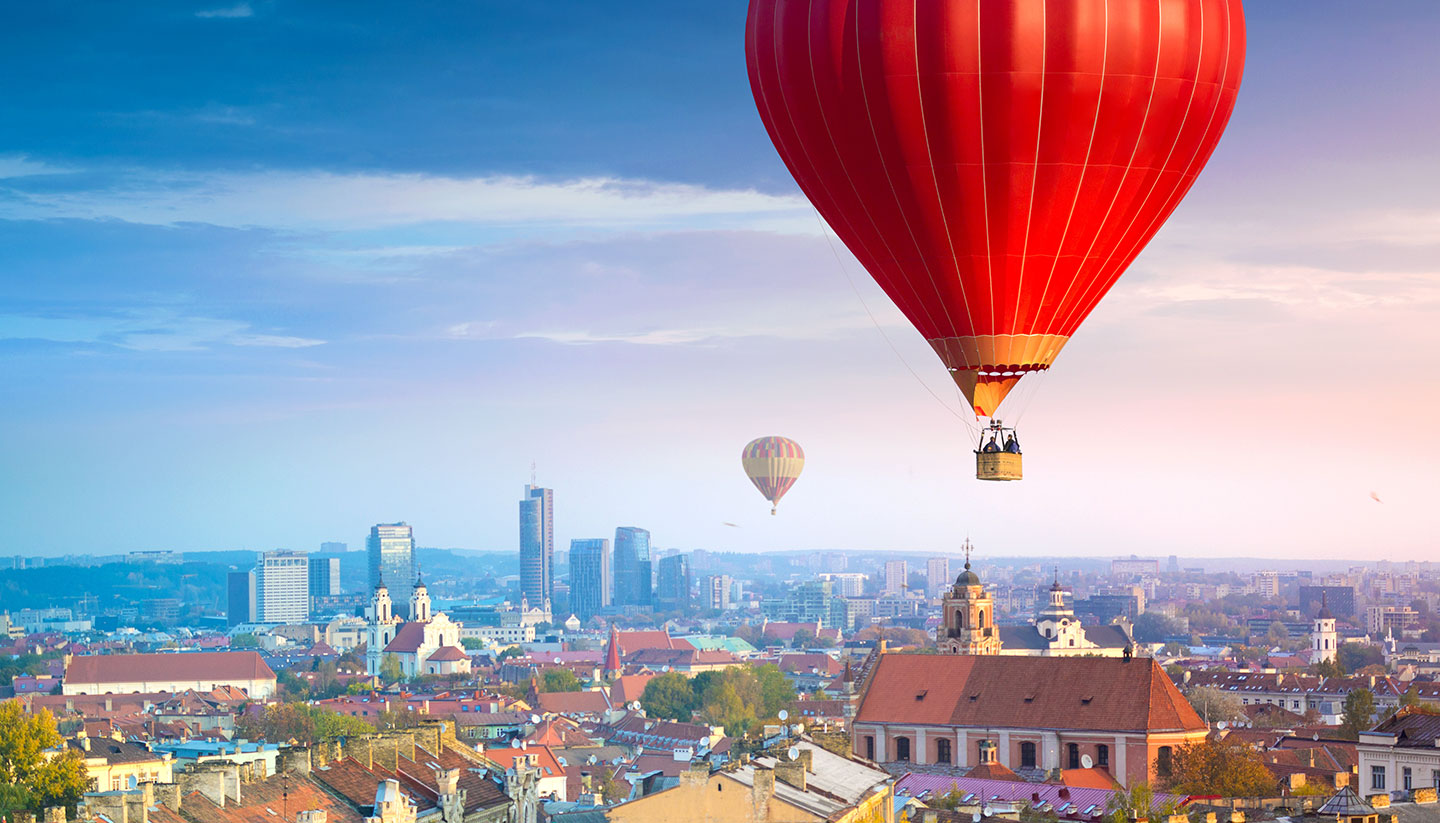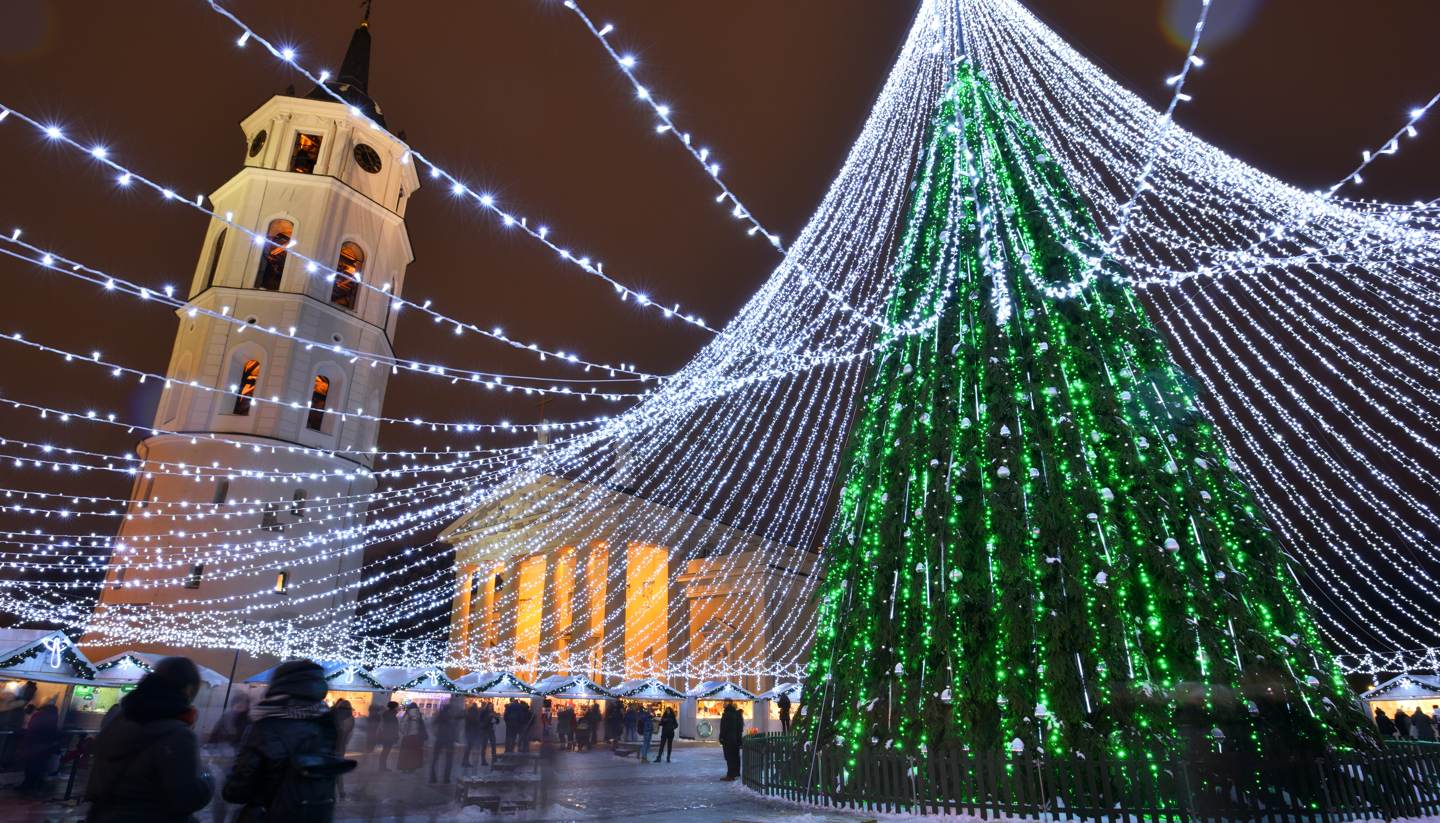Lithuania travel guide
About Lithuania
Lithuania is a spellbinding land of castles, lakes and forests. Though relatively few knew of its charms until recently, Lithuania's capital, Vilnius, is one of Europe's most enchanting cities, owing especially to its Baroque old town. Then there is the Baltic shore, which may not have the sun-soaked appeal of other coasts, but is idyllic and largely unspoilt. The southernmost country in the Baltics, Lithuania is also home to vast plains parted by hills and sand dunes.
Lithuanian independence came soon after the collapse of the Soviet Union in 1991. By 1995, the transition to a full market economy had been completed. The long-running border dispute with Poland was settled with the signing of a friendship and co-operation treaty in January 1992 and negotiations with Russia led to the withdrawal of the remaining Russian troops in Lithuania in August 1993. The Russian connection remains, however, with Russians being the second largest ethnic minority in the country. The largest of the three Baltic states, Lithuania gaining EU membership in 2004, since which time the country has been thrust on to the global stage, encouraging more visitors than ever.
Most of the attraction for Lithuania lies with its natural treasures. Much of the country is verdant, with several national parks that are perfect for hikers and explorers. All around the country there are countless sprawling forests ripe for wandering, as well as numerous lakes sprinkled across the landscape.
Perhaps the country's trump card is the Baltic coastline, where beguiling wetlands brim with wildlife, most notably the thousands of bird species. There's also the Curonian Spit, a stunning 100km strip of land that separates the Curonian Lagoon from the Baltic Sea, which is covered in white sands.
Key facts
65,300 sq km (25,212 sq miles).
2,850,030 (UN estimate 2016).
44.2 per sq km.
Vilnius.
Republic.
President Gitanas Nauseda since 2019.
Prime Minister Gintautas Paluckas since 2024.
Travel Advice
Before you travel
No travel can be guaranteed safe. Read all the advice in this guide. You may also find it helpful to:
- see general advice for women travellers
- read our guide on disability and travel abroad
- see general advice for LGBT+ travellers
- read about safety for solo and independent travel
- see advice on volunteering and adventure travel abroad
Travel insurance
If you choose to travel, research your destinations and get appropriate travel insurance. Insurance should cover your itinerary, planned activities and expenses in an emergency.
About FCDO travel advice
The Foreign, Commonwealth & Development Office (FCDO) provides advice about risks of travel to help you make informed decisions. Find out more about FCDO travel advice.
Get travel advice updates
Sign up to get email notifications when this advice is updated.
Follow FCDO:
This information is for people travelling on a full ‘British citizen’ passport from the UK. It is based on the UK government’s understanding of the current rules for the most common types of travel.
The authorities in Lithuania set and enforce entry rules. If you’re not sure how these requirements apply to you, contact the Lithuanian Embassy in the UK.
Passport validity requirements
Lithuania follows Schengen area rules. Your passport must:
- have a ‘date of issue’ less than 10 years before the date you arrive – if you renewed your passport before 1 October 2018, it may have a date of issue that is more than 10 years ago
- have an ‘expiry date’ at least 3 months after the day you plan to leave the Schengen area (the expiry date does not need to be within 10 years of the date of issue)
Check with your travel provider that your passport and other travel documents meet requirements. Renew your passport if you need to.
You will be denied entry if you do not have a valid travel document or try to use a passport that has been reported lost or stolen.
Visa requirements
You can travel without a visa to the Schengen area, which includes Lithuania, for up to 90 days in any 180-day period. This applies if you travel:
- as a tourist
- to visit family or friends
- to attend business meetings, cultural or sports events
- for short-term studies or training
The requirements for working in Lithuania are different.
If you’re travelling to other Schengen countries as well, make sure your whole visit is within the 90-day visa-free limit. Visits to Schengen countries in the 180 days before you travel count towards your 90 days. If you overstay the 90-day visa-free limit, you may be banned from entering Schengen countries for up to 3 years.
Make sure you get your passport stamped on entry and exit.
If you’re a visitor, border guards will look at your entry and exit stamps to check you have not overstayed the 90-day visa-free limit for the Schengen area.
If your passport is missing a stamp, show evidence of when and where you entered or left the Schengen area (for example, boarding passes or tickets) and ask the border guards to add the date and location in your passport.
At Lithuanian border control, you may need to:
- show proof of your accommodation, for example, a hotel booking confirmation or proof of address for a second home
- show proof of your travel insurance
- show a return or onward ticket
- prove that you have enough money for your stay – the amount varies depending on your accommodation
Staying longer than 90 days in a 180-day period
To stay longer, you must meet the Lithuanian government’s entry requirements. Check which type of visa or permit you need with the Lithuanian Embassy in the UK .
If you stay in Lithuania with a residence permit or long-stay visa, this does not count towards your 90-day visa-free limit.
Read about passport stamping if you live in Lithuania.
New Schengen entry requirements
The EU’s Entry/Exit System (EES) is expected to start in October 2025. It is not currently in operation. The European Union will inform about the specific start date of the EES before its launch.
Read more information on the EU Entry/Exit System.
Arriving from Belarus or Russia
If you arrive in Lithuania from Belarus or Russia, including the Kaliningrad Oblast, and need help, call +370 5246 2900 and select ‘calling about an emergency involving a British national’. You can also contact FCDO online.
British nationals can travel to Lithuania from Belarus or Russia by bus. Restrictions may apply if arriving in a privately owned car registered in Belarus. Russian plated vehicles are currently only permitted to enter Lithuania for up to 24 hours if transiting to or from the Kaliningrad Oblast.
For more information, see the Lithuanian Customs Service website, and read FCDO’s Russia travel advice or Belarus travel advice.
Vaccine requirements
For details about medical entry requirements and recommended vaccinations, see TravelHealthPro’s Lithuania guide.
Customs rules
There are strict rules about goods that can be brought into and taken out of Lithuania. You must declare anything that may be prohibited or subject to tax or duty.
Taking food into Lithuania
You cannot take meat, milk or products containing them into EU countries. There are some exceptions such as powdered baby milk, baby food and special foods or pet feed required for medical reasons.
Taking money into Lithuania
Declare cash or travellers cheques if the value is 10,000 euros or more. You will get a certified declaration to show you brought it in with you. If you do not, your money could be seized when you leave.
Russian vehicle restrictions
There are restrictions on vehicles with Russian number plates in Lithuania.
There is a high threat of terrorist attack globally affecting UK interests and British nationals, including from groups and individuals who view the UK and British nationals as targets. Stay aware of your surroundings at all times.
UK Counter Terrorism Policing has information and advice on staying safe abroad and what to do in the event of a terrorist attack. Find out how to reduce your risk from terrorism while abroad.
Terrorism in Lithuania
Terrorist attacks in Lithuania cannot be ruled out.
Crime
Protecting your belongings
Petty crime is common. To reduce your risk:
- beware of pickpockets in busy locations and on public transport
- avoid unlit streets and parks at night
- be cautious if you’re walking alone
- do not leave coats and handbags unattended in bars, pubs and clubs
Drink and food spiking
There have been instances of drink spiking in Vilnius and at festivals and events elsewhere in Lithuania. Do not leave drinks unattended and be wary of accepting food and drink from strangers in bars, nightclubs and restaurants.
Laws and cultural differences
Illegal drugs and prison sentences
Possessing even very small quantities of drugs can lead to imprisonment or heavy fines.
LGBT+ travellers
While there are some LGBT+ friendly venues in larger cities, small towns and rural areas can be less accepting of LGBT+ travellers.
Same-sex relationships are legal and same-sex partners can live together, but same-sex marriages and civil partnerships are not recognised under Lithuanian law.
Read more advice for LGBT+ travellers.
Transport risks
Road travel
If you are planning to drive in Lithuania, see information on driving abroad and check the rules of the road in the RAC’s Lithuania guide. The guide lists driving regulations and other requirements that you need to be aware of.
You can use a UK photocard driving licence to drive in Lithuania. Make sure it has the correct name and address. Renew or update your licence if necessary.
If you still have a paper driving licence, you may need to update it to a photocard licence or get the correct version of the international driving permit (IDP) as well.
Hire car companies often have stricter requirements for their customers, such as a year of driving experience and a higher minimum age.
Drink-driving is a serious offence in Lithuania, and the legal limits are stricter than in the UK. If you are tested and have over the legal limit for alcohol in your system, you may face a heavy fine and imprisonment.
Check if you need a UK sticker to drive your car outside the UK.
Taxis
It is safer to use a recognised taxi app or to phone for a registered taxi that uses a meter. Make sure the meter is switched on to avoid arguments about the fare.
Curonian Spit, Klaipeda
The Spit, a UNESCO World Heritage Site, is divided between Lithuania and Russia – the northern half is in Lithuania and the southern half is part of Kaliningrad, Russia. Visitors should be aware that the walk along the Curonian Spit in Lithuanian territory will eventually reach Russian territory. See Russia travel advice.
Before you travel check that:
- your destination can provide the healthcare you may need
- you have appropriate travel insurance for local treatment or unexpected medical evacuation
This is particularly important if you have a health condition or are pregnant.
Emergency medical number
Dial 112 and ask for an ambulance.
Contact your insurance or medical assistance company quickly if you’re referred to a medical facility for treatment.
Vaccine recommendations and health risks
At least 8 weeks before your trip:
- check the latest vaccine recommendations for Lithuania
- see where to get vaccines and whether you have to pay on the NHS travel vaccinations page
See what health risks you’ll face in Lithuania.
Medication
The legal status and regulation of some medicines prescribed or bought in the UK can be different in other countries.
Read best practice when travelling with medicines on TravelHealthPro.
Healthcare in Lithuania
FCDO has a list of medical providers in Lithuania where some staff will speak English.
Health insurance cards
To get medically necessary state healthcare in Lithuania, you need a Global Health Insurance Card (GHIC) or a European Health Insurance Card (EHIC).
The NHS’s getting healthcare abroad webpage has details about:
- how to apply for a GHIC
- how to get temporary cover if you lose your card or it does not arrive in time
- who qualifies for a new EHIC instead of a GHIC
- what treatment counts as medically necessary
A GHIC or EHIC is not an alternative to travel insurance. You may have costs your GHIC or EHIC does not cover, including:
- changes to travel and accommodation bookings
- additional standard costs for treatment
- medical repatriation to the UK
- treatment that is ruled non-urgent
- private healthcare
- private clinics
There is also guidance on healthcare if you’re living in Lithuania.
Travel and mental health
Read FCDO guidance on travel and mental health. There is also mental health guidance on TravelHealthPro.
The Foreign, Commonwealth & Development Office (FCDO) cannot provide tailored advice for individual trips. Read this travel advice and carry out your own research before deciding whether to travel.
Emergency services in Lithuania
Telephone: 112 (ambulance, fire, police)
Contact your travel provider and insurer
Contact your travel provider and your insurer if you are involved in a serious incident or emergency abroad. They will tell you if they can help and what you need to do.
Refunds and changes to travel
For refunds or changes to travel, contact your travel provider. You may also be able to make a claim through insurance. However, insurers usually require you to talk to your travel provider first.
Find out more about changing or cancelling travel plans, including:
- where to get advice if you are in a dispute with a provider
- how to access previous versions of travel advice to support a claim
Support from FCDO
FCDO has guidance on staying safe and what to do if you need help or support abroad, including:
- finding English-speaking lawyers, funeral directors and translators and interpreters in Lithuania
- dealing with a death in Lithuania
- being arrested in Lithuania
- getting help if you’re a victim of crime
- what to do if you’re in hospital
- if you’re affected by a crisis, such as a terrorist attack
Contacting FCDO
Help abroad
See how to get help from the UK government abroad including in an emergency.
Help in the UK
You can call FCDO in London if you need urgent help because something has happened to a friend or relative abroad.
Telephone: 020 7008 5000 (24 hours)
Get travel advice updates
Sign up to get email notifications when this travel advice is updated.
Follow FCDO:
Risk information for British companies
The Overseas Business Risk service offers information and advice for British companies operating in Lithuania on how to manage political, economic, and business security-related risks.
